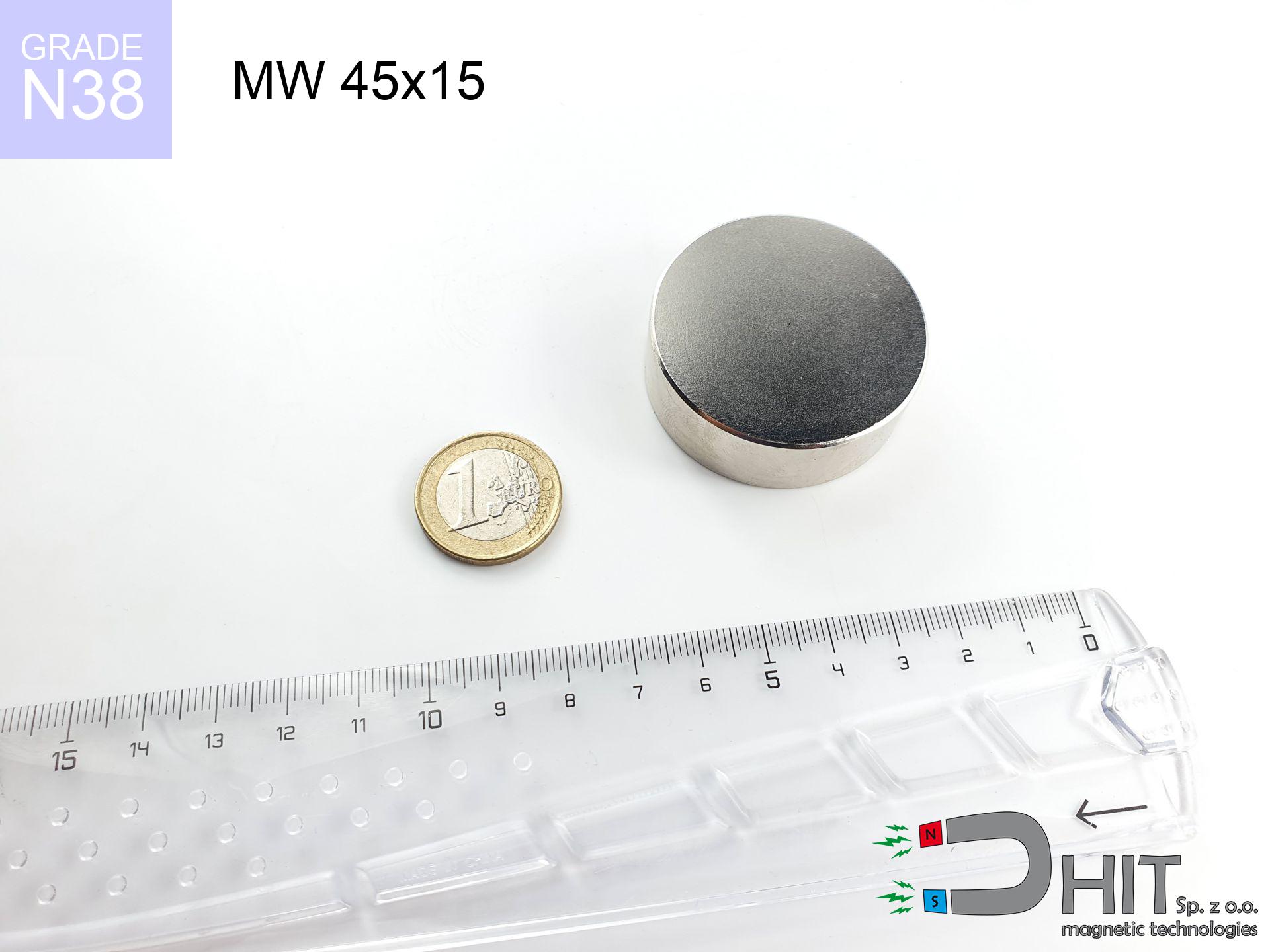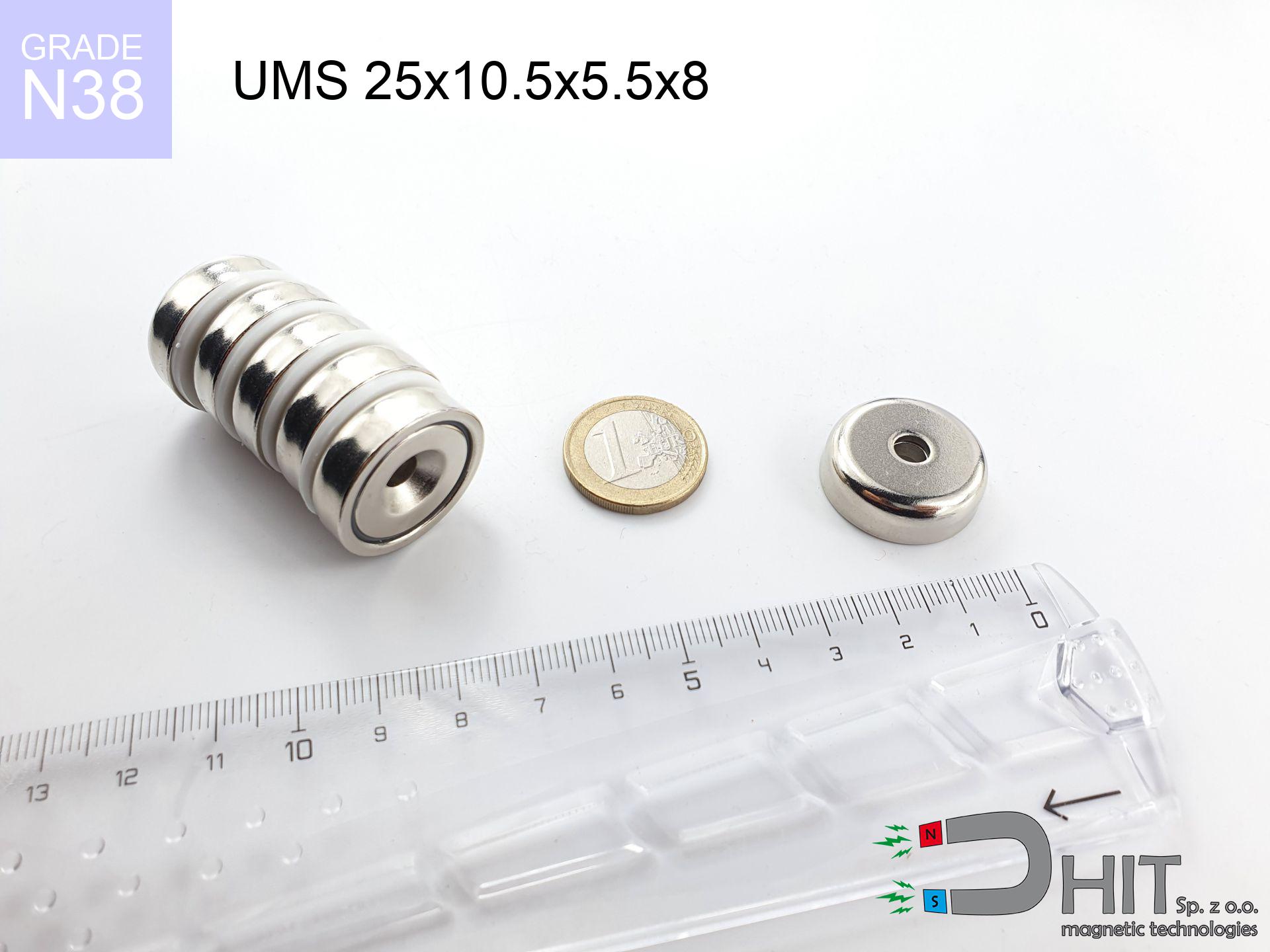AM ucho [M12] - magnetic accessories
magnetic accessories
Catalog no 080347
GTIN/EAN: 5906301812500
Weight
101.5 g
Load capacity
480.00 kg / 4707.19 N
9.84 ZŁ with VAT / pcs + price for transport
8.00 ZŁ net + 23% VAT / pcs
bulk discounts:
Need more?
Pick up the phone and ask
+48 22 499 98 98
alternatively drop us a message via
request form
the contact section.
Specifications along with appearance of neodymium magnets can be analyzed on our
power calculator.
Order by 14:00 and we’ll ship today!
Physical properties - AM ucho [M12] - magnetic accessories
Specification / characteristics - AM ucho [M12] - magnetic accessories
| properties | values |
|---|---|
| Cat. no. | 080347 |
| GTIN/EAN | 5906301812500 |
| Production/Distribution | Dhit sp. z o.o. |
| Country of origin | Poland / China / Germany |
| Customs code | 85059029 |
| Weight | 101.5 g |
| Load capacity ~ ? | 480.00 kg / 4707.19 N |
| Manufacturing Tolerance | ±1 mm |
Physical properties of sintered neodymium magnets Nd2Fe14B at 20°C
| properties | values | units |
|---|---|---|
| Vickers hardness | ≥550 | Hv |
| Density | ≥7.4 | g/cm3 |
| Curie Temperature TC | 312 - 380 | °C |
| Curie Temperature TF | 593 - 716 | °F |
| Specific resistance | 150 | μΩ⋅cm |
| Bending strength | 250 | MPa |
| Compressive strength | 1000~1100 | MPa |
| Thermal expansion parallel (∥) to orientation (M) | (3-4) x 10-6 | °C-1 |
| Thermal expansion perpendicular (⊥) to orientation (M) | -(1-3) x 10-6 | °C-1 |
| Young's modulus | 1.7 x 104 | kg/mm² |
Chemical composition
| iron (Fe) | 64% – 68% |
| neodymium (Nd) | 29% – 32% |
| boron (B) | 1.1% – 1.2% |
| dysprosium (Dy) | 0.5% – 2.0% |
| coating (Ni-Cu-Ni) | < 0.05% |
Ecology and recycling (GPSR)
| recyclability (EoL) | 100% |
| recycled raw materials | ~10% (pre-cons) |
| carbon footprint | low / zredukowany |
| waste code (EWC) | 16 02 16 |
Check out also deals
Pros as well as cons of neodymium magnets.
Benefits
- They retain attractive force for nearly ten years – the drop is just ~1% (according to analyses),
- They do not lose their magnetic properties even under external field action,
- By applying a decorative coating of gold, the element gains an aesthetic look,
- The surface of neodymium magnets generates a concentrated magnetic field – this is a distinguishing feature,
- Neodymium magnets are characterized by very high magnetic induction on the magnet surface and can function (depending on the shape) even at a temperature of 230°C or more...
- Possibility of detailed machining and adjusting to individual needs,
- Universal use in future technologies – they are used in computer drives, brushless drives, medical devices, and industrial machines.
- Thanks to concentrated force, small magnets offer high operating force, occupying minimum space,
Limitations
- Susceptibility to cracking is one of their disadvantages. Upon strong impact they can break. We advise keeping them in a strong case, which not only secures them against impacts but also raises their durability
- When exposed to high temperature, neodymium magnets suffer a drop in strength. Often, when the temperature exceeds 80°C, their strength decreases (depending on the size, as well as shape of the magnet). For those who need magnets for extreme conditions, we offer [AH] versions withstanding up to 230°C
- They rust in a humid environment. For use outdoors we suggest using waterproof magnets e.g. in rubber, plastic
- We suggest casing - magnetic holder, due to difficulties in producing nuts inside the magnet and complicated shapes.
- Health risk related to microscopic parts of magnets pose a threat, in case of ingestion, which gains importance in the aspect of protecting the youngest. Additionally, small components of these products can disrupt the diagnostic process medical when they are in the body.
- Higher cost of purchase is one of the disadvantages compared to ceramic magnets, especially in budget applications
Lifting parameters
Maximum lifting capacity of the magnet – what contributes to it?
- on a plate made of structural steel, effectively closing the magnetic field
- possessing a thickness of at least 10 mm to avoid saturation
- with a plane free of scratches
- under conditions of ideal adhesion (surface-to-surface)
- during detachment in a direction vertical to the mounting surface
- at ambient temperature room level
Practical lifting capacity: influencing factors
- Distance (betwixt the magnet and the metal), since even a microscopic distance (e.g. 0.5 mm) can cause a decrease in lifting capacity by up to 50% (this also applies to varnish, rust or dirt).
- Loading method – catalog parameter refers to pulling vertically. When attempting to slide, the magnet exhibits much less (often approx. 20-30% of nominal force).
- Metal thickness – the thinner the sheet, the weaker the hold. Part of the magnetic field penetrates through instead of generating force.
- Metal type – different alloys attracts identically. High carbon content worsen the attraction effect.
- Base smoothness – the smoother and more polished the surface, the better the adhesion and stronger the hold. Unevenness creates an air distance.
- Thermal environment – temperature increase results in weakening of force. It is worth remembering the maximum operating temperature for a given model.
Lifting capacity testing was conducted on plates with a smooth surface of optimal thickness, under perpendicular forces, whereas under attempts to slide the magnet the load capacity is reduced by as much as 75%. In addition, even a small distance between the magnet’s surface and the plate decreases the lifting capacity.
Safe handling of neodymium magnets
Warning for allergy sufferers
Nickel alert: The Ni-Cu-Ni coating consists of nickel. If redness appears, cease handling magnets and wear gloves.
Compass and GPS
A powerful magnetic field interferes with the functioning of magnetometers in smartphones and navigation systems. Do not bring magnets near a smartphone to prevent breaking the sensors.
Maximum temperature
Control the heat. Heating the magnet above 80 degrees Celsius will destroy its magnetic structure and strength.
Electronic hazard
Do not bring magnets close to a purse, laptop, or TV. The magnetism can permanently damage these devices and erase data from cards.
Bodily injuries
Watch your fingers. Two large magnets will snap together immediately with a force of several hundred kilograms, destroying anything in their path. Be careful!
Risk of cracking
Beware of splinters. Magnets can explode upon violent connection, launching sharp fragments into the air. Wear goggles.
Dust is flammable
Mechanical processing of NdFeB material carries a risk of fire hazard. Neodymium dust reacts violently with oxygen and is difficult to extinguish.
Handling guide
Handle with care. Rare earth magnets act from a distance and snap with massive power, often quicker than you can react.
Life threat
For implant holders: Powerful magnets disrupt electronics. Keep minimum 30 cm distance or ask another person to work with the magnets.
Do not give to children
Absolutely keep magnets away from children. Choking hazard is high, and the effects of magnets connecting inside the body are life-threatening.

![Magnetic accessories AM ucho [M12] Magnetic accessories AM ucho [M12]](https://cdn3.dhit.pl/graphics/banners/magnet.webp)
![AM ucho [M12] - magnetic accessories](https://cdn3.dhit.pl/graphics/products/am-ucho-m12-maz.jpg)





